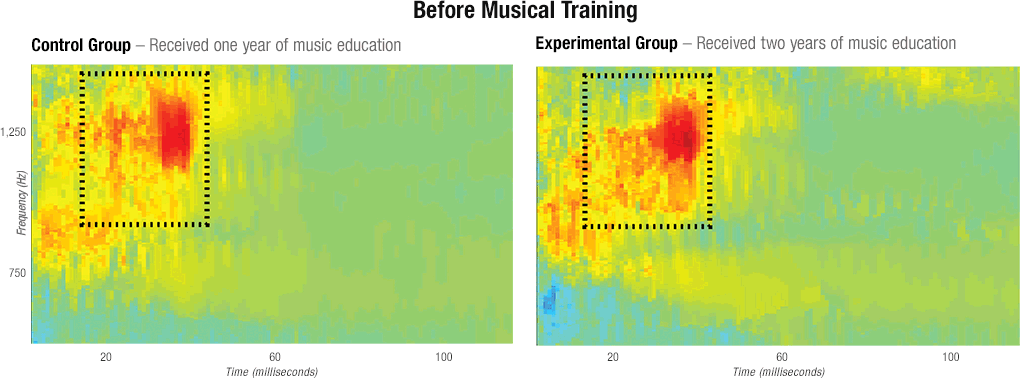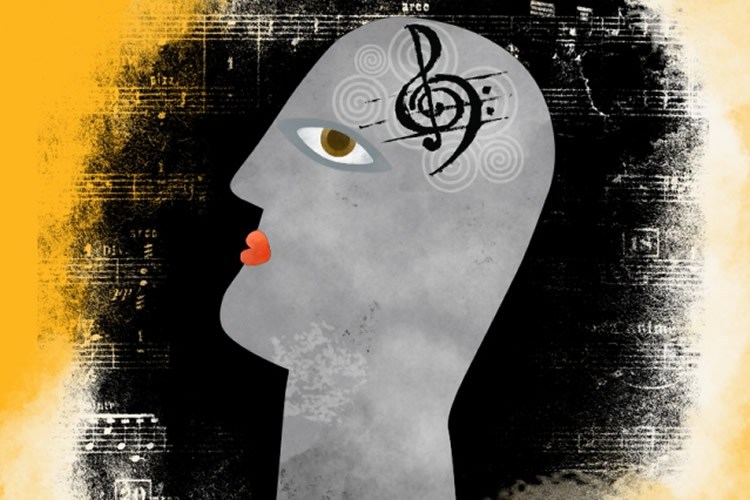Making Waves: Instruments and the Brain
Researchers found that after two years of music lessons, the young musicians didn't just get better at playing their instrument; playing music also improved their brain's ability to process language.
A different music-related study, published in 2014 in The Journal of Neuroscience researched children involved in after-school music programs created by the Harmony Project, a non-profit organization in Los Angeles dedicated to teaching children in low-income communities.
Researchers found that after two years of music lessons, the young musicians didn't just get better at playing their instrument; playing music also improved their brain's ability to process language. It's a problem for kids coming from more impoverished backgrounds because they often hear fewer words and their developing brains get less stimulation than in more affluent communities.
To see what effect the music-making might have, neurobiologist Nina Kraus used scalp electrodes to measure brainwaves to determine how the young musicians' brains were responding to their playing—and how it improved their ability to process and distinguish sounds. What she found suggested that it came down to three musical elements: pitch, timing and timbre.
So it makes sense that improving the way our ears process sounds can help in language processing, too. Consonants and vowels become clearer, and the brain can make sense of them more quickly. The more practice the brain has, the faster it gets at picking apart these sounds.

These heat maps of brainwaves show hwo much music lessons improved how kids in the Harmony Project could distinguish consonants.
Photo courtesy of LA Johnson and Alyson Hurt/NPR.
Since the program began in 2008, 93 percent of the students attending public schools involved in the programs are graduating and moving on to attend college, vastly improving on these same schools' 50 percent dropout rate before the Harmony Project. That's a really big improvement!
Who's in Your Ear Buds: Mozart, Maroon 5, Eminem, or Marvin Gaye?
If music can help your brain retain information, improve learning, and even help with speech capabilities, who will you be listening to? How do you use your creativity to enhance your learning?
Want to Learn More?
- Turner, Cory. "This Is Your Brain. This Is Your Brain On Music." NprEd, 10 Sep, 2014. http://www.npr.org/sections/ed/2014/09/10/343681493/this-is-your-brain-this-is-your-brain-on-music. Accessed on 14 Jul, 2016.
- Health, Sound. "Charles Limb on Music, the Brain and Why We Need to Understand Creativity." Medium. The Kennedy Center., 8 May, 2017. https://medium.com/the-kennedy-center/charles-limb-on-music-the-brain-and-why-we-need-to-understand-creativity-bc3d0eaae61e. Accessed on 7 Jun, 2017.
- "Sound Health." The Kennedy Center., 30 Nov, -0001. http://www.kennedy-center.org/festivals/soundhealth. Accessed on 7 Jun, 2017.
